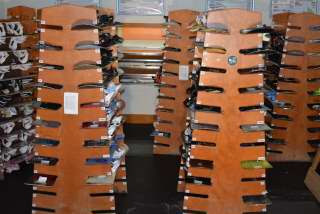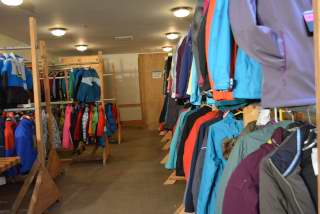The origin of Veterans Day goes back to Nov. 11, 1918, and is the anniversary of the signing of the armistice that ended World War I hostilities between the Allied Nations and Germany. As many of us remember and honor those who have served the United States in the military, many of us remain unaware of the major contributions Native Americans have made to our armed forces.
It is interesting to note that Native Americans served in the U.S. military in greater numbers per capita than any other ethnic group and that they have served with distinction in every major conflict in our history.
It is estimated that more than 12,000 Native Americans served in World War I and that 44,000 Native Americans, out of a total population of 350,000 served with distinction between 1941 and 1945. During WWII on the home front, more than 40,000 Native Americans left their reservations to work in factories and other war industries. Many of these battle-hardened Native American Indians that served in WWII also served in the Korean War along with new Native American recruits like Charles Lindberg Kilson and his late brother, Earl Anderson Kilson. More than 42,000 Native Americans, 90% of them volunteers fought in Vietnam, and Earl Anderson Kilson was one of the many Native Americans that continued to serve their country in the Vietnam War. Today, there are almost 200,000 Native American military veterans.
Each year on November 10, The Institute for American Indian Studies, located on 38 Curtis Road in Washington holds a traditional ceremony at 12 noon that includes prayers and drumming to honor the contributions and valor of Native American Veterans. This year there will be a very special traditional ceremony at the Institute for American Indian Studies to honor Charles Lindberg Kilson, Senior, as well as the memory of his brother Earl Anderson Kilson, Senior of the Schaghticoke Tribal Nation. Both brothers served in the United States Navy during the Korean War. Earl also served during the early years of the Vietnam War. The Institute is inviting the general public, veterans and non-veterans alike to join them in a moving traditional ceremony to honor these two Native American brothers. After the ceremony, visitors are invited to a light lunch in the museum to learn more about the fascinating story of these two brothers. This event is free and open to the public.
About Charles Lindberg Kilson
Charles (Lindy) was born on May 16, 1931, and currently resides in Sandy Hook, Connecticut. For many years, he and his family lived on the Schaghticoke Indian Reservation in Kent, CT where he is an active member with the Schaghticoke Tribal Nation. He has many memories that remain alive of his younger days of hunting and fishing on his land.
The War Years
On December 29, 1950, Charlie took the train from Kent, CT and traveled to the Brooklyn Navy Yard in New York where he enlisted and was sworn into the United States Navy. Shortly after boot camp, he was assigned to duty on a destroyer named, the USS Purdy. Afterwards, he was assigned to another destroyer named, the USS Dickson #708. Both homeports of both vessels were located in Newport, Rhode Island and both ships, at different times, were at port off the Korean coast during the Korean War patrols.
On October 19, 1952, Charlie had to undergo major surgery at the Newport Naval Hospital, which involved removing part of his left lung. This particular medical procedure kept him hospitalized for nearly six months. While in the hospital, Charlie's father, Earl Kilson, Sr. was able to visit his son with the assistance and kindness of a Kent Resident State Trooper who drove him there. Upon Charlie's release from the naval hospital, he immediately requested to be put back on the USS Dickson where his brother Earl, Jr. was stationed. Earl had enlisted in the Navy four years prior. The Navy granted Charlie's request and both brothers served together until Earl's transfer to submarine service where he worked in fire control ignition. Charlie also requested a transfer and was denied due to the complexity of his surgery. Naval officials told Charles that he and Earl were the first brothers to be put on a naval ship together, since the death of the Sullivan Brothers during World War II.
Back Home
While on the USS Dickson, Charlie was a 1st Class Seaman Gunner's Mate. He specialized and assisted in bow guns, which were 5 inch-38s. Charlie stayed on the USS Dickson until January 1954, when he returned home to the Schaghticoke Reservation, where his family resided with his younger brother, Russell. He found work with the Thompson Brothers Excavation Company. Shortly after his return home, Charlie met Mildred (Millie) Fagan the woman that he was to spend the next 63 years with. Together, they began a family and moved to Sandy Hook where, in 1970, they both were employed with the Newtown High School, Charlie as a School Custodian and Millie as a Cafeteria Assistant. After 42 years at the Newtown High School, both Millie and Charlie retired.
On November 11, 2009, the Town of Kent dedicated a monument for veterans serving in World War II, the Korean and Vietnam War Veterans, and both Charlie and Earl, Jr. names are listed on it and were present for the dedication ceremony. Charlie still has his Enlistment Card and still remembers his serial number.
Charlie is a profoundly proud member of his Tribe, the Schaghticoke Tribal Nation (STN). He has always been active within his Tribe & attends every Tribal meeting and every social event. Many believe that Charlie is the oldest living member and that his many titles include Lindy (to his family) Charlie (to his many friends) Dad, Pop, Grandpa, Uncle, Cousin, Big Dog and Elder/STN Tribal Member.
About Earl Anderson Kilson
Earl (Bub) Kilson was born on July 11, 1928, and lived with his family on the Schaghticoke Reservation in Kent, for much of his young life. Upon his death, he was an active member of the Schaghticoke Tribal Nation. Earl had many memories of his hunting and fishing days on his land.
War Years
Earl enlisted into the United States Navy in 1946. Shortly after his graduation from boot camp during World War II, he was stationed and onboard an aircraft carrier in the Sea of Japan. He was later assigned to a destroyer and was stationed at the Naval Base in Newport, Rhode Island. His brother, Charlie, along with Earl both served on the USS Dickson, which was scheduling patrols off the Korean coast during the Korean War. Earl, later, transferred to submarine service working in fire control ignition. His first ship was an old diesel-operated submarine and his next advancement was serving on the USS Seawolf, the second atomic-operated submarine in the U.S. Fleet. Most of Earl’s submarine training took place in Connecticut at the sub base in Groton.
During the Cuban Missile Crisis, the submarine that Earl was serving on was part of the blockade and was under orders to stay in position during that crisis. At another point in Earl's naval career, he was stationed in the Pacific at Pearl Harbor during the initial stages of the Vietnam War. At this time he served in the Atlantic Fleet as well as the Pacific Fleet. The final submarine that Earl served on was the USS Trigger.
Back Home
After 20 years of service, Earl retired from the Navy with the rank of Chief Electronics Petty Officer in 1966. He, along with his wife Lillian, and their children moved to Dover, New Hampshire where he was employed at the Portsmouth Naval Yard in Kittery, Maine. There, Earl participated in the sea trials associated with new submarines that were being constructed; his wife, Lillian was proud to be present at several sea trials.
Earl retired from the Portsmouth Naval Yard after 20 years. He was an active member of the Schaghticoke Tribal Nation and for many years would travel to attend the Schaghticoke Tribal meetings and socials. He resided in Dover with his family until his death on March 16, 2014.










